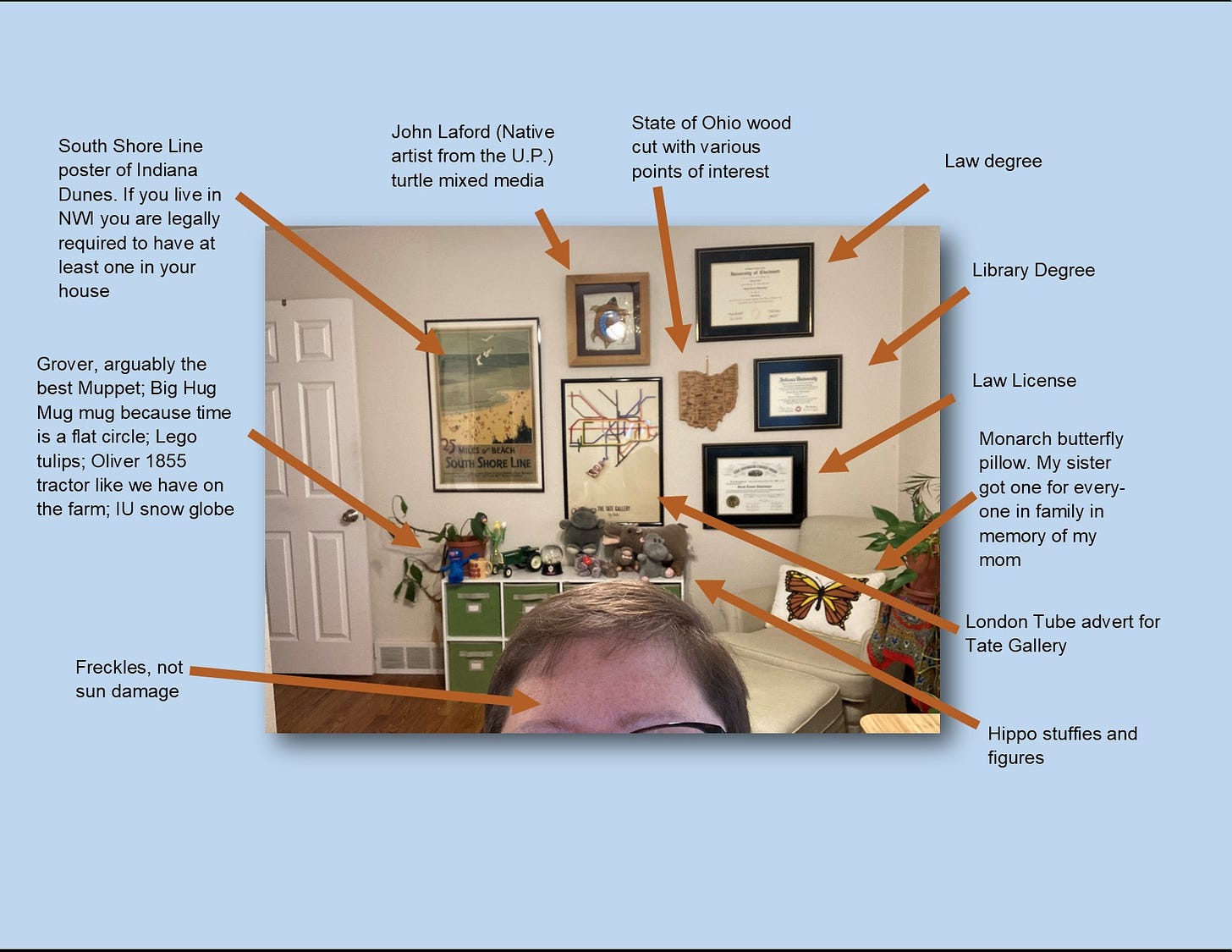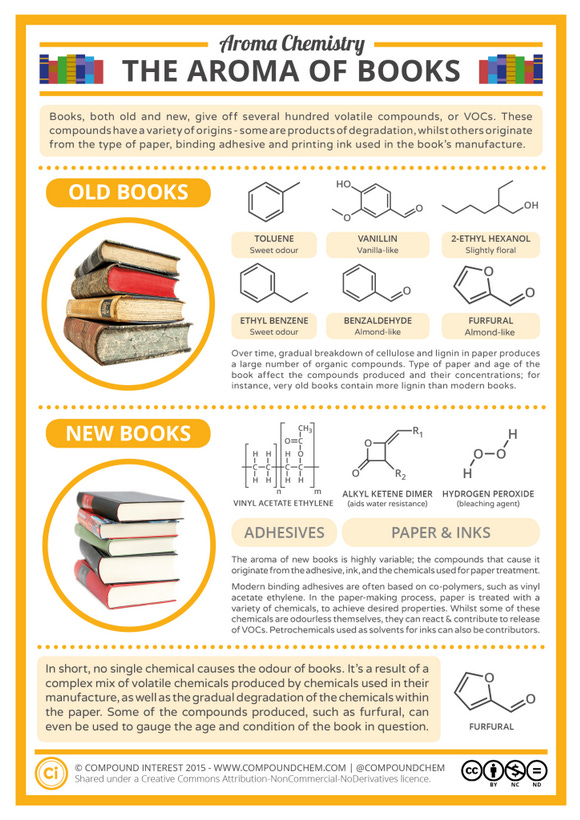Hello Friends in the Computer,
How are things? How are you? It’s been a while.
I am okay, although I am on Week Three of what I thought was allergies or depression or depressionallergies but whatever it was morphed into a sinus/ear infection that landed me in an E.R. in the Upper Peninsula which was… an experience. But now I’m on lots of drugs including some steroids so I feel exhaustedGREAT.
(I don’t know about you, but there’s something about being on steroids that make me feel like mopping the kitchen floor at 4am is a great idea.)
(It’s not.)
Aside from (or maybe despite or because of that?), now that I am through the end of February, I feel like I can breathe again and buckle down on some of the ideas that I came up with over the last few months. Because in looking at my notes apparently there was a lot! So stay tuned.
Anyway, let’s get into some of the things that caught my eye over the last two weeks or so.
What is Technology Competence?
I did not end up making it into the city for TECHSHOW like I planned. I was tempted to power through feeling like crud on Friday but then a winter storm with 9 inches of snow was forecasted and I was like “okay God is telling me to keep my sick butt at home.” Thankfully social media has allowed me to catch some highlights.
As you may have gathered, technology competence and education is a topic near and dear to my heart. There was a great sounding session on it and I really liked this slide from Ivy Grey (who is one of those people on my “always pay attention to what they say” list):
This is document drafting tech based, but I liked the framing of a spectrum of competence from “incompetent” to “overkill”. (But remember, at least in my constantly wracked with Catholic guilt opinion, ethics rules are just a bare minimum and you can always strive to go above and beyond.) The rest of her slides can be found here.
Stochastic Parrots
The line between “information literacy” and “using technology as a lawyer” is razor thin in my opinion, as law is knowledge work and most legal technology or technology used by lawyers is used in service of creating or manipulating knowledge.
I just read this write up of a talk by librarian Barbra Fister titled “Information Literacy, Writing Instruction, and the Problem of Stochastic Parrots.” From the abstract:
Librarians and writing instructors both face a fundamental tension between our higher goals and the reality of our service roles to other disciplines. Two concepts that seem important but are too often overlooked are first, understanding the underlying ethical moves and commitments that characterize good honest work, whether it’s science, journalism, or an informative TikTok, and second, understanding how information systems shape our experiences, especially now that we no longer simply seek information, it seeks us. Today we’ll explore ways these concepts could be addressed without losing sight of the practical needs of writing instructors and their students to satisfy disciplinary expectations.
There’s a lot in there about ChatGPT and other LLMs that can be extrapolated to the law world.
Speaking of Teaching Technology - Constellate
I learned about this organization/service/tool called Constellate. Let me have them tell you about themselves:
Constellate enables schools of all sizes to teach data and text analytics with a learning platform that empowers faculty, librarians, and other instructors to educate a new generation of learners in text and data analysis. Our solution, centered on student and researcher success, provides text and data analysis capabilities and access to content from some of the world’s most respected databases in an open environment with a variety of teaching materials that can be used, modified, and shared. We envision a future where text and data analytics skills are being taught on Constellate in classes in all disciplines.
The have a bunch of tutorials and a builder/sandbox to play with. It’s built over JSTOR content so there’s a bunch of law journals for legal content. Is this the year I finally become proficient in Python? I mean, probably not but a girl can dream.
Cautious Optimistic Annoyance About LLMs
If you’ve never had the experience of having Casey Flaherty tag you in a post with a “don’t worry I still love you”, well let me tell you scrolling through the first 10,000 words or so until you find your name has got to be worth at least 30 minutes of cardio.
Here’s the rest of the post which is also very good. It’s a Casey post, though, so block out some time, maybe get a cup of coffee or another beverage, put your feet up and enjoy. Literally the only thing I miss about my regular bus commute into the city is that it gave me a good uninterrupted block of time to dig into Casey’s and Jae Um’s chunky writings.
Anyway, the ending really sums up my feelings quite a bit:
I am confident there will be many worthwhile LLM-powered applications in legal. Parallel Search, AllSearch, and CoCounsel are evidence of that. I am just as confident there will be many less-than-worthwhile applications riding the LLM hype train. I am certain distinguishing the former from the latter will require work (choice overload will increase, as will the premium on trust). I am equally certain that even good tools will be misapplied because of failures to do the prerequisite process mapping, stakeholder engagement, future-state planning, and requirements gathering, not to mention process re-engineering, implementation, integrations, knowledge management, change management, and training. LLMs will change much. But LLMs will not change everything, and the danger of automating dysfunction remains high.
I am a cautious optimist. I’ve never been more excited about what’s possible. I’ve never been more pre-annoyed at how much nonsense is about to be unleashed. It will be fun. It will also be not fun. Most of all, to channel my cherished friend Jason Barnwell, I am convinced things will get weird.
If I may quote my problematic hero HST, “when the going gets weird, the weird go pro.” Open your mind to possibilities and use cases that may not even exist or can be contemplated. Let’s get weird, y’all.
Speaking of LLMs…Casetext Reveals CoCounsel
With the caveat that I haven’t played with it myself, I was very excited to see that Casetext has developed a product using OpenAI’s tech. As Casey said above, there’s a premium placed on trust and I trust the folks at Casetext to do cool shit but do it in a way that is safe and sensible given the high stakes nature of legal work. And also be very transparent about what their tools can and cannot (and should not) do. From the PR:
To tailor general AI technology for the demands of legal practice, Casetext established a robust trust and reliability program managed by a dedicated team of AI engineers and experienced litigation and transactional attorneys. Casetext's Trust Team, which has run every legal skill on the platform through thousands of internal tests, has spent nearly 4,000 hours training and fine-tuning CoCounsel's output based on over 30,000 legal questions. Then, all CoCounsel applications were used extensively by a group of beta testers composed of over 400 attorneys from elite boutique and global law firms, in-house legal departments, and legal aid organizations, before being deployed. These lawyers and legal professionals have already used CoCounsel more than 50,000 times in their day-to-day work.
Casetext (along with Fastcase) are my favorite examples of “if you let people have access to primary law, they will develop cool stuff.” Both of the companies have expanded well beyond basic legal research, but they got their start doing it (and almost didn’t exist due to the monopoly on access to primary law.) Things are a bit easier now for people that want to create proof of concept prototypes thanks to the Harvard LII Caselaw Access Project.
The Handbook for Legal Innovation
I work with Nikki Shaver now and all the stuff she has going on with Legaltech Hub is so exciting and impressive. She’s also incredibly kind and decent. But apparently on top of it all she’s been writing a book! CHECK IT OUT. I haven’t read it but again I trust her so I’m betting it will be good background for anyone from law students to experienced legal professionals wanting to work in the legal innovation sphere.
Is Access to Justice Punk?
Tom Martin of LawDroid has a take on how the punk attitude can be applied to the access to justice movement. For comparison/contrast, here’s my thoughts on a broader LexPunk attitude.
More punk and weirdness in law, please!
Now Some Fun Stuff
I love maps of all ages and types. Someone on Mastodon shared this fun guide:

Another Mastodon share was this article on what causes the smell of old and new books.
Libraries are not about books or physical collections or facilities but I really love and miss working around books and grand law libraries like YLS or Cornell. And yes, books of all ages smell amazing.
And if you’ll excuse some self indulgence - but what is this newsletter other than an extensive exercise in self indulgence? - in a steroid induced sprint at an inappropriate hour, I redid the back wall of my office/zoom room. It’s missing a Charley Harper print, but other than that, it is a nice representation of who I am maybe? Here’s a breakdown:

So that’s all for now.
Be well,
Sarah







Get that Charlie Harper print on the wall right away - it'll be perfect! Thanks for another great newsletter chock full of tech info plus a few laughs. Well done.